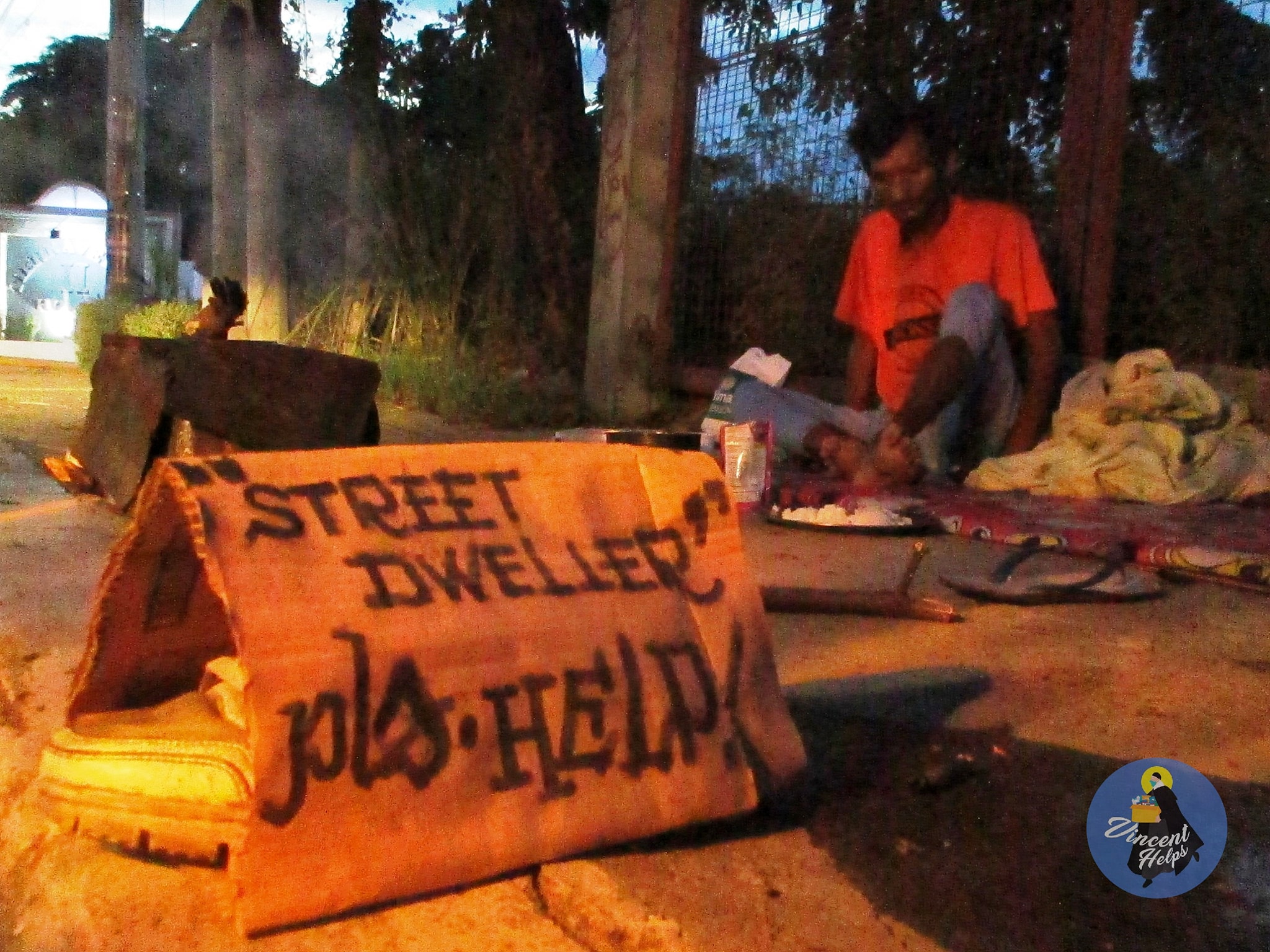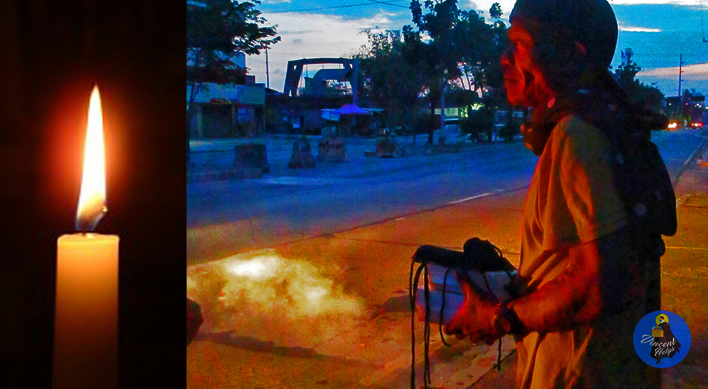Eulogy Service by the Roadside
EULOGY SERVICE BY THE ROADSIDE
In the time of pandemic, all rituals of death are denied both to the dying person and his loved ones. The patient does not have the consolation of his family by his or her deathbed. Not even the consoling presence of a priest or the last sacraments. The wake happens only after cremation and it should be short. There are no eulogy services or elaborate funeral rites. One’s cherished friends are prohibited to come; all the family are considered PUM or PUI. And the funeral is only accompanied by a handful of relatives if they can pass the checkpoints at all. This is the saddest time to die.
But not for Kuya Long.

We met Kuya Long by the roadside of Congressional Avenue when we were first distributing hot meals during the first week of the lockdown. He has been living with a group of beggars and street people under the bridge for years. But this time we found him in a very bad shape. He could no longer stand up nor speak. He could not eat and throws up most often. He has a colostomy bag with him which, without running water, can make life quite inconvenient. And he has no medicine for whatever disease he was suffering from. But he has a friend – Kuya Jojo, also a beggar like him. He takes care of him with the meager resources they have. But that’s about it.
Rhomel Frontuna, Vincent Rabeje II and Nonoy Estella – from our #VincentHelps Team – looked for ways and arranged for his transfer to a hospital, and called his relatives about his condition. We really thought he would survive. But two days after, he passed on – only with Kuya Jojo by his deathbed.
When I heard about his death, I went to visit his friends under the bridge. It was about sunset and they were eating their dinner which they also got from relief groups that passed by. It was so warm under the bridge. So now they eat and sleep by the roadside. I stayed a bit longer than usual. And then they started sharing about the life of Kuya Long.
“Eulogy,” Ambrose Bierce (1842-1914) writes, “is a praise of a person who has either the advantages of wealth and power, or the consideration to be dead.”
What happened last Monday night was neither. Kuya Long is the most destitute you can ever imagine a man can be. Neither is he considered dead among his friends under the bridge. In their stories, he is very much alive. While the rich do not have the privilege of eulogy service in this time of pandemic, what happened that night was a simple yet profound remembrance of grieving friends.
I will summarize what they said as far as I can remember.
“We lived together for six years under this bridge. He has a family but got separated from them for reasons we do not know. We also have our quarrels and misunderstandings. But he considered us all his family. He is our Kuya. There were other younger beggars. He took care of all of them. Whatever he had, he gave it all to them. That is why I am sad because when Kuya Long could no longer walk, these young men just passed him by. But he cared for them.”
“Kuya Long was a driver to a family living nearby. When he was asked to drive on long trips, I lent him my T-Shirts and pants since he has no decent one. But when he comes home, he brings a lot of pasalubong for us. It is like a feast when he comes back.”
“He has relatives around Metro Manila. They take care of him. But he does not want to bother them. So, despite his situation, he just lives here alone.”
Kuya Jojo, his friend, shared last.
“He seldom shares something deep but one night we talked from our hearts. He asked me: ‘What is your deepest dream?’ I could not easily answer that question. So, I asked him ‘You, what is your deepest dream?’ He said: ‘I know society does not look at us in admiration. For them, we are nothing, zero. I am not also going to stay long. I am going soon. But my deepest wish before I go is to see my four kids. I want to tell them that they have a father. And maybe I will ask for their forgiveness.”
And like all who die in the time of COVID, Kuya Long did not get his life’s wish.
As they were sharing this, they were all crying. In fact, they have been looking for me, and maybe waiting for this occasion to cry. Many were wiping their tears while others were just there – quiet and sad. One lady said she has been crying for him for three nights now.
Kuya Jojo could not stand crying. He stood up and talked to the young man at the side. I was wondering what he wanted to do. He gave him a small candle and asked him to light it in Kuya Long’s corner on the other side of the road. They were lighting a candle there every night since he died.
When I looked up, the full moon was rising. Time for me to go. I went home cherishing the most profound eulogy service I have ever attended in my life. By the roadside. Under the moonlight.
No fancy words. No exaggerated praise. Just a simple sharing of experiences with someone whom society has despised and forgotten but, in their eyes, had lived an honorable and well-spent life.
In the end, I was wondering why they keep calling him “Kuya Long” when in fact his real name was Felix. And they answered “because he had a long hair”! OK, Kuya Long!
Then, I remember someone who died like him – despised and forgotten. But to his friends, he was a great man. He also sported a long hair. He lived in Nazareth years ago.
Daniel Franklin E. Pilario, C.M.
St Vincent SchoolofTheology
Adamson University
danielfranklinpilario@yahoo.com
05.05.2020
Follow us @ #VincentHelps



